No Results Found
The page you requested could not be found. Try refining your search, or use the navigation above to locate the post.
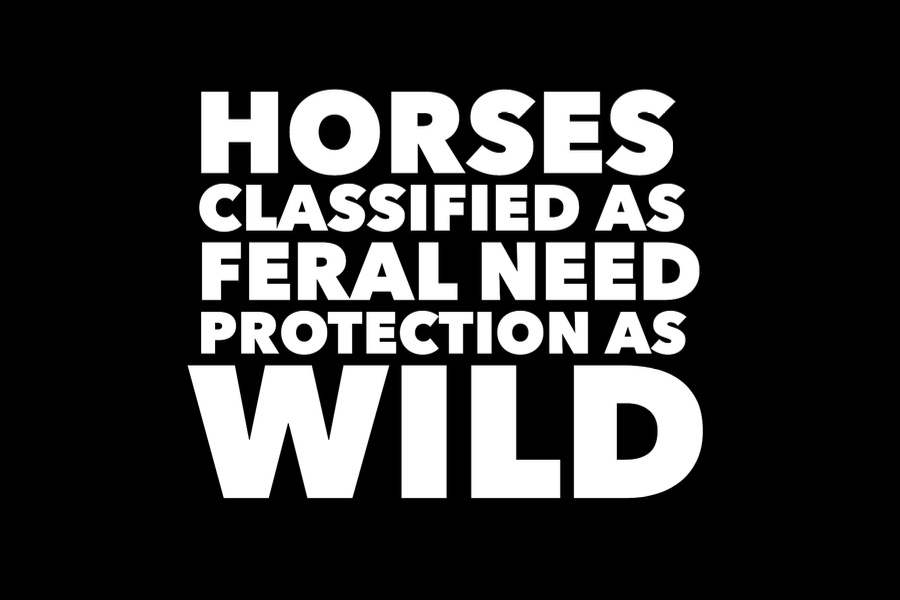
You may have noticed since the shooting earlier this month of 17 wild horses in British Columbia, Canada that there’s been an increase in the chatter about whether horses in British Columbia and other parts of Canada who run free are wild or feral.
You may also have noticed that we rarely post on social media, or on this site without a call to action also known as a CTA.
We like to educate and raise awareness, then provide solutions, and courses of action that we are taking to make a difference and that others can join us in doing to help horses and other equines. Whether that be stopping the slaughter of horses within Canada, for human consumption or any purpose, including those imported from the USA for slaughter here (or in Mexico) or stopping the live export of horses from Canada to Japan – or anywhere else — for slaughter.
So what is the Call To Action (CTA) when it comes to helping horses like these 17 who were needlessly shot on Crown land?
That’s a good question. A very good question.
First, let’s start with a recent article in the Globe and Mail. (For our non-Canadian friends The Globe and Mail is a newspaper printed in five cities in western and central Canada and often referred to as the country’s “newspaper of record”. Current readership is estimated to be around 2 million.)
The article is titled: Wild horse slaughter in B.C. saddens, divides local community
And starts out:
The recent slaughter of 17 wild horses in British Columbia’s Interior devastated members of the local community who regard them as an ancient and enchanting part of the landscape. However, the horses are thought of by others as pests, grazing machines that out-compete important species for food and territory.
Even ecologists disagree on whether wild horses deserve more protection.
Cpl. Lepine anticipates charging whoever is responsible for the killings under the Prevention of Cruelty to Animals Act, which carries a maximum punishment of $75,000 in fines and two years in jail.
The free-roaming horses are culturally significant to the Skeetchestn Indian Band, a community with deep roots in horsemanship that has held a rodeo for well over 100 years, according to former band councillor Terry Deneault.
In a statement released Wednesday, the band said that it was “saddened” by the “heinous crime” that occurred
“As our stories tell us, we are connected to all animals that walk, fly and swim, and it is our responsibility to ensure that all life is respected and cared for,” the statement said.
“While these horses did not live on Skeetchestn’s land and the crime occurred outside of our community, we are mourning the unnecessary loss of wildlife that we share this beautiful landscape with.”
So the comments in the article from the former band council member tell us that at least some in the First Nations community most directly “related” to this herd of horses consider the horses to be wild.
Those comments pleased us greatly because as the title of the Globe and Mail article states, the local community is divided and that has been our personal experience when it comes to the wild horses of British Columbia.
We’ve experienced – NOT with this particular Band – some members of other First Nations Bands who when wild horses are being a nuisance the horses are wild, but at other times some of the horses are used for trail rides, then turned out to fend for themselves for the winters – including horses that are branded.
Perhaps even more disheartening, members of more than one band in B.C. routinely round up these wild horses and ship them directly to slaughter in Alberta for human consumption.
We are NOT saying this is the norm.
AND we also want to say that there are groups within many bands and WHOLE bands who are working hard to protect horses and who treat them with respect.
Back to the article…
In B.C., as in the rest of Canada save for a handful of small reserves, free-roaming horses aren’t considered “wild” since the government doesn’t consider them to be native to the land. They are instead branded as “feral,” which disqualifies them from most wildlife protections.
Wayne McCrory, a biologist in B.C. who has studied free-roaming horses in Canada extensively, thinks new legislation is necessary.
“It’s time to ramp up protection, both federal and provincial, in my opinion, to stop this senseless slaughter when some trigger-happy person just decides to take the law into his own hands,” Mr. McCrory said.
Mr. McCrory is involved in research on Chilcotin horses’ DNA that could prove they’re descendants of horses that arrived in Canada in the 1700s. This could help establish that the horses are native to the land and therefore eligible for protection.
So there it is, there is a possible call to action, a CTA. Reach out to your Member of Parliament and your BC MLA and ask them to designate this herd as wild horses.

We do need to say that the article continues with a different point of view, that being that wildland resources would be better served by protecting land from horses, in favour of harder to sustain wildlife species. You can read the full article here.
“It is acknowledged that these horses are of cultural significance to the local Skeetchestn Band.”
Police are asking anyone with information to call the
RCMP Livestock Section at 250-299-7462,
or email cory.lepine@rcmp-grc.gc.ca

THANK YOU to Lana Marie for sharing this NL Radio interview with biologist Wayne McCrory.

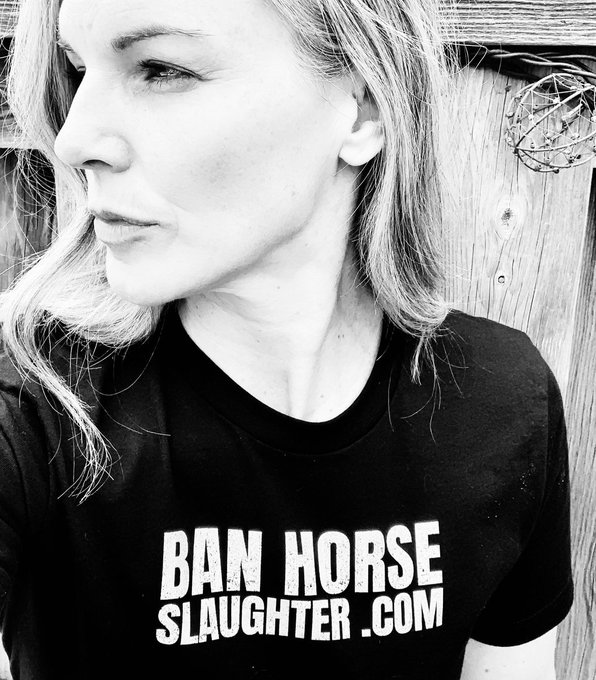
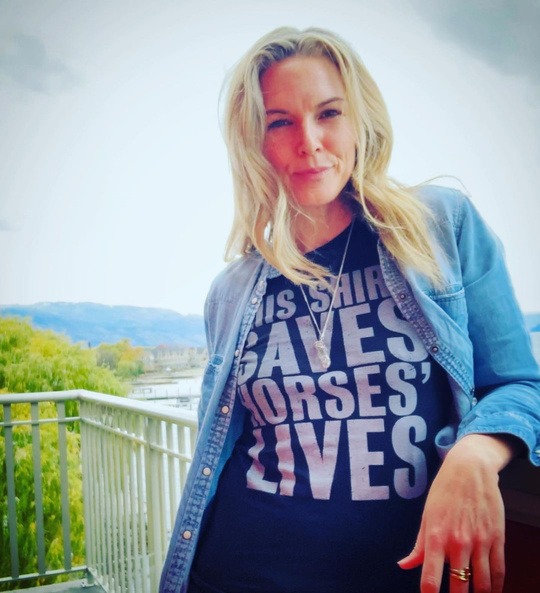
The page you requested could not be found. Try refining your search, or use the navigation above to locate the post.
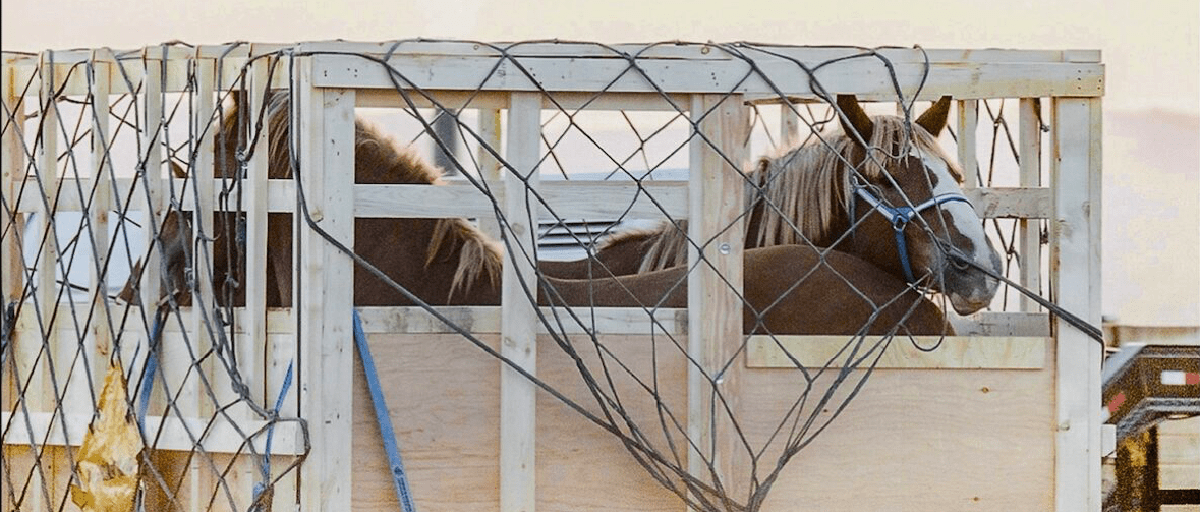
The Honourable Lawrence MacAulay, the current Minister of Agriculture and Agri-Food, has the power to end the inhumane export of horses by air for slaughter by enacting a regulatory amendment.
Help spread the word by sharing this email campaign with friends and family! You can also support the cause by donating—your contribution will help fund advertising efforts to raise awareness and push for change. Every action makes a difference!
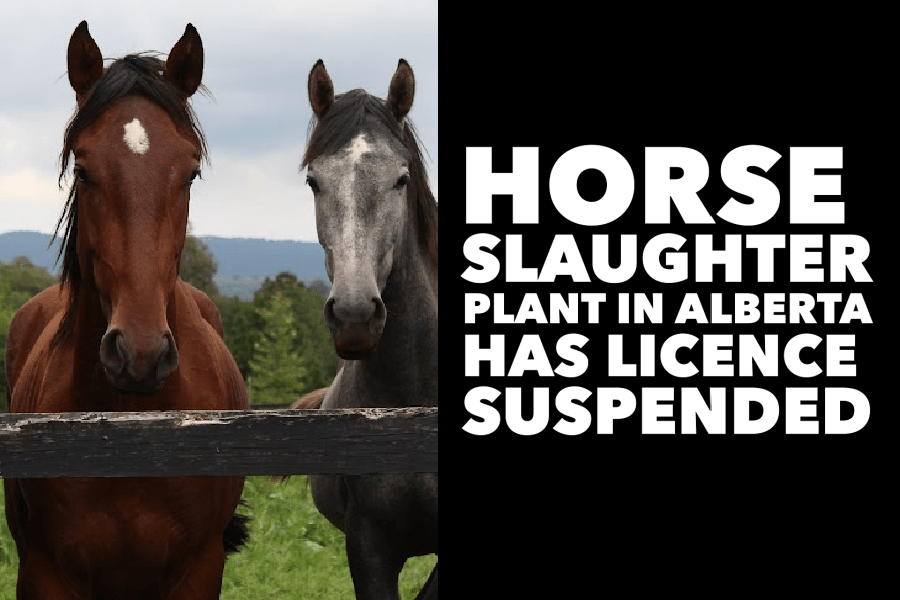
Read the full “report” from the Canadian Food Inspection Agency here
While the suspension is in effect, the licence holder may not conduct any activity for which licence #3H7GFH7D was issued.

The Canadian Food Inspection Agency has suspended the Safe Food for Canadians (SFC) licence, effective Feb. 17, for a meat-processing plant in Fort Macleod, Alta.
In an emailed release Friday, the CFIA said Bouvry Exports Calgary Ltd. failed to comply with regulations related to operational sanitation procedures to prevent cross-contamination of food, and preventative control measures for the detection of E. coli and temperature deviation in carcasses.
Licences can also be cancelled when the licence holder is notified of grounds for cancellation, and given an opportunity to be heard.
DANGEROUS DRUGS FOUND IN HORSE MEAT IN CANADAOkay, so you may be thinking to yourself, "But I don't eat horse meat so what do I care if twice in the last 30 days, horse meat produced in Canada has been recalled due to being tainted with dangerous drugs, drugs that...
This blog post is worthy of a re-post. You may also be interested in Happy Canada (Slaughters Horses) Day as well.Why aren't Canadian food inspectors surprised there's horse meat in YOUR sausages? Beware, summer BBQ-ers: there could be horse meat in your pork...



The page you requested could not be found. Try refining your search, or use the navigation above to locate the post.

The Honourable Lawrence MacAulay, the current Minister of Agriculture and Agri-Food, has the power to end the inhumane export of horses by air for slaughter by enacting a regulatory amendment.
Help spread the word by sharing this email campaign with friends and family! You can also support the cause by donating—your contribution will help fund advertising efforts to raise awareness and push for change. Every action makes a difference!
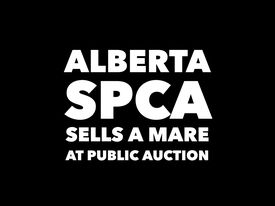
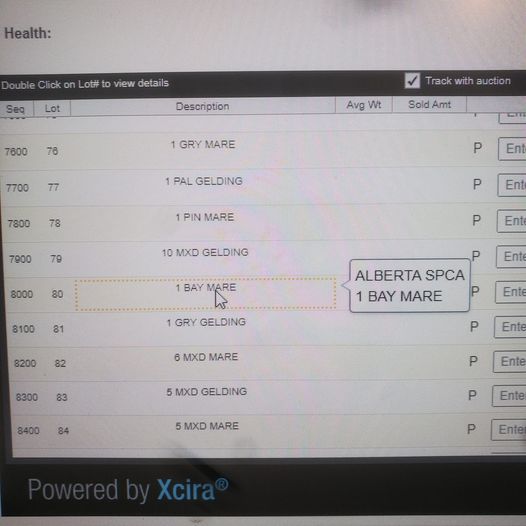
Chances are good that if you know anything about horse slaughter in Canada you’ve come across Cindy Thomas of Horse Heroes Alberta.
Multiple times per month for the last couple of years Cindy has attended horse auctions in Alberta, Canada — and since early 2019 she’s facilitated the rescue of over 550 horses from the slaughter pipeline.
Cindy’s goal is to save as many horses as she can by outbidding kill buyers AKA meat buyers at the auctions. She’s backed by an amazing group of people from across North America who regularly contribute to help offset the huge expenses of purchasing horses — and then properly caring for them, and owner surrendered horses – before they are carefully rehomed in permanent homes.
Recently Cindy and others were shocked to find a horse at an auction that was “marked” as being owned by the Alberta SPCA.
Of course most of us are completely outraged to hear that the SPCA sells horses at any auction because auctions are frequented by kill buyers who ship horses to slaughter for human consumption.
If you are like me, you believe that horses once in the care of the Alberta SPCA should be protected — they should be given a soft landing — they certainly shouldn’t be placed in harm’s way at an auction where they risk being transported to slaughter.
I tend to think of it as the SPCA arranging a “plea bargain” for those who neglect their equines.
Here’s just one example of why you may find horses at a public auction marked as being “owned” by the SPCA…
The SPCA may negotiate a deal with owners whose horses are neglected, a deal where the owners agree that if they are paid for their equines, they will agree to give them up — the SPCA is able to quickly take those equines away from further harm, they are able to avoid lengthy and expensive court cases.
But then the challenge is that in the past owners have taken the SPCA to court claiming that they have not received fair market value for their horses.
When the SPCA sells horses at a public auction, it makes it very difficult for a former owner to claim they did not receive “fair market value” for their horse and therefore very difficult to take legal action against the SPCA.
Thankfully in the case of the recent auction, Cindy Thomas and her Horse Heroes Alberta supporters were able to buy a mare marked as being sold by the SPCA — who might otherwise have gone to slaughter.

Vivian Bell writes:
I spoke via email with the Alberta SPCA and here is a summary of how they are legally bound in this issue of seizure:
1) The SPCA are constantly sued after seizure cases and spend a great deal of money on litigating these cases.
It is disheartening to them to see how much owners are willing to pay to fight for money back on their “property”, when if they used that money to take care of the animals in the first place there never would have been seizure.
People are bizarre.
Years of experience in the courts have shown the SPCA how to best protect themselves from these attacks and to try to minimize the money spent on court cases so that more goes to physically helping animals.
2) It is apparently routine for owners of seized animals (the owners who do not sign over the animals to the SPCA and choose to fight legally) to vastly overestimate the value of their animals.
Experience has taught the SPCA that if they try and arrange private sales of seized animals, either to rescues or anyone, then they get accused by the owner of deliberately trying to rip them off and then they get sued.
The way to avoid this is public auction, it is open and transparent and then the difficult owner has no grounds for litigation.
3) Sometimes an owner admits to the SPCA they can no longer care for their animals and that they want to sell them.
If the owner no longer has the capacity to sell, then the SPCA steps in and removes the animals and then acts on the owners behalf to sell them if they wish at auction. In that case the SPCA are seen as villains. If the SPCA do not do this and leave the animals on the property, then they are seen as not acting to help the animals.
It’s tricky and they have to try and do their best within the law.
4) And this is the most important point – when there are no potential legal threats, then the SPCA is happy to gift horses, animals to rescues or placement partners to find homes for them.
This is often after the SPCA invests vet care, food, etc. in the animals and they ask nothing back in return.
In the meantime, it is in everyone’s best interests, especially the horses and donkeys, to forge good working relationships between SPCA’s and rescue groups.
It can be beneficial to rescue groups because the SPCA with their larger resources can do the more expensive work of vet care, feed, assessment etc. before the equines are either gifted to rescues or when forced to, go to auction — with good working relationships between rescues and SPCA’s, be bought by rescues at auction.

Good morning Ms. Thomas,
Section 7 of the Animal Protection Act (APA) dictates that peace officers take legal custody of animals but the owners of animals retain a legal right to their animals or the value of those animals.
In broad terms I will explain how this applies to the work we do using a hypothetical situation.
If Alberta SPCA Peace Officers need to seize 100 head of cattle to relieve their distress, the owner is legally entitled to reclaim their animals and if the owners chooses not to reclaim then the proceeds, less the seizure costs, are paid to the owner of the animals.
That owner may believe the cattle are worth more than they are.
The owner may believe they’re worth $150,000 because that’s the current market price cattle are selling for.
However, because the cattle in question are not in ideal condition the market will not pay that amount.
When the animals are sold at auction the owner may only receive $100,000 and may allege he/she is owed more from the sale.
Section 14 of the APA protects our peace officers from legal actions brought against them provided they can demonstrate they acted in good faith.
Many, including yourself, have suggested we simply sell the animals to groups for slightly more than what a meat buyer would pay at auction.
However, imagine the situation above involving the hypothetical owner of the 100 cattle.
If we were to agree to sell the cattle for $100,000 to a group without benefit of a public sale the owner may assume we cut a deal to a favoured animal-related group instead of selling the cattle for his perceived full available price.
In a situation like that, the owner can allege we acted in bad faith and it would be difficult for our agency to prove otherwise.
We then are open to significant civil liability and punitive costs.
By selling them at auction we are being open and transparent and removing the appearance or perception of favouritism.
As a law enforcement agency, it is important we remain consistent in how we deal with the subject(s) of an investigation, and consistent in how we interact with other organizations, otherwise we risk litigation and the allegation of bad faith.
Our agency often finds itself in court to defend against allegations of bad faith and which often have little to nothing to do with the actual welfare of the animals in question.
It is disheartening how many subjects we deal with who choose to spend money to engage in costly court battles when they could have instead invested those funds into looking after their animals in the first place.
In the case of the two horses at the Rimbey auction, the horses were part of a file that involved several species of animals and due to legal considerations, all animals were dispersed in the same manner.
As the investigation into the case remains open, we cannot provide further details.
I hope this helps explain the circumstances and challenges we face when dealing with complicated and sensitive investigations.
Regards,
Dan Kobe
Communications Manager Alberta SPCA

The rules and regulations that the SPCA has to follow in each province vary — but if like me you are appalled that the SPCA need to protect themselves by selling horses at public auctions to the highest bidder, even if that bidder is a kill buyer, then please join me in using the links below and contacting your provincial politicians who can change the antiquated policies.
Let’s take action to protect our beloved equines and other animals. ~ Marie



The page you requested could not be found. Try refining your search, or use the navigation above to locate the post.

The Honourable Lawrence MacAulay, the current Minister of Agriculture and Agri-Food, has the power to end the inhumane export of horses by air for slaughter by enacting a regulatory amendment.
Help spread the word by sharing this email campaign with friends and family! You can also support the cause by donating—your contribution will help fund advertising efforts to raise awareness and push for change. Every action makes a difference!
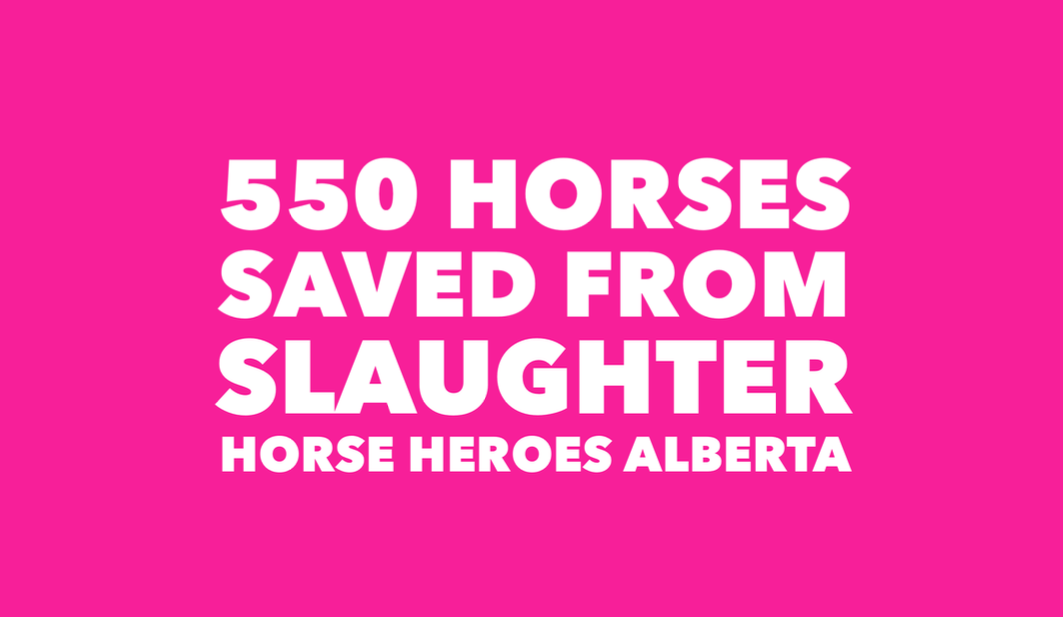
Marie writes:
I first came to know of Cindy Thomas in 2018 when her horse Molly, a Clydesdale was stolen from her ranch in Alberta, Canada. The story went viral on social media and was picked up by press across the nation.
At the time Cindy wasn’t fully aware of what was going on with horses being slaughtered in Canada for human consumption, and she was appalled as she started to learn more.
I was totally blown away with how she handled the press that Molly’s story received, how even though she was, of course, extremely upset that her horse was missing — Cindy never missed a chance to tie into the interivews how horses are slaughtered in Canada for human consumption.
You can watch the TV interviews and learn more about Molly here.
I’d like to make you aware of a profound concern I have regarding horses here in Alberta. Our agriculture industry is still classifying equines as livestock, and allowing inhumane treatment and slaughter of horses for human consumption.
For the last two years, I’ve been active in saving over 550 horses from the slaughter pipeline.
I’ve attended auction sales at least twice monthly.
At every sale, I’ve witnessed horses in severely compromised conditions.
Horses with broken legs, severe injuries, illegally sedated horses (which permits toxic substances to get into the food chain via commonly used drugs such as phenylbutazone).
I’ve witnessed mares heavy in gestation, horses that are completely blind, emaciated horses and so much more.
I’ve had young foals die in my arms from hypothermia, I’ve also taken horses straight to the vet from sales to humanely euthanize them, and this is just the start of a continuous cycle.
Horses are suffering because auctions are turning a blind eye to inhumane treatment, and the rules and regulations in regards to horses at auctions are sadly very sparse and need improvement.
Please note I have documents photos and vet reports to substantiate the above claims.
Recently Jann Arden, a Juno award winning singer, songwriter and actress, hosted an ‘All Party Animal Welfare Caucus’ meeting on Zoom.
Over 50 interested MPs were in attendance, because of the public outcry that’s gaining phenomenal momentum.
Because of that same momentum W 5 and Maclean’s Magazine are in the process of doing additional pieces exposing how cruel horse slaughter is.
In 2011, under President Obama, the USA banned any type of funding for commercial horse slaughter, therefore shutting down any federally funded horse slaughter facilities. Canada could easily do the same.
In Alberta, there are at least 58 registered equestrian facilities, a minimum of 80 equine clubs, 45+ licensed equine assisted learning facilities (including trauma rehab for veterans), 16 equine specialist veterinarians, and a huge number of care givers (farriers, equine dentists, etc.).
There are over 12 large established Horse Rescue facilities in our province, showing the need for an honorable venue for horses in need.
This is not even remotely comparative to any other animal classified as livestock. Horses clearly are unique, and should not continue to be in this AG classification.
There are approximately eight places in Alberta that breed horses intentionally for human consumption. The number of horses sent for slaughter far surpasses the number specifically bred for this purpose. 95% of horses that enter the Bouvry slaughter plant were raised for pleasure and recreational purposes.
It is morally and ethically unacceptable to send a companion to be butchered and more and more Canadians are recognizing the need for change.
A recent Nanos poll shows a substantial 69% of Canadians are vehemently opposed to horses being slaughtered.
The movement to prevent our beloved horses from continuing to die at the hands of a 22-caliber rifle within Alberta, and a movement to prevent horses from being inhumanely transported to Japan for slaughter is growing exponentially every day.
Please note using a .22-calibre rifle to slaughter a horse, which is how Bouvry Exports here in Alberta slaughters horses, when that calibre is not legal for hunting purposes of an animal even half the size of a horse — is barbaric.
This clearly isn’t a case of farmers raising cattle to put food on our neighbors’ table, but rather, pet owners shirking responsibility and utilizing an inhumane system to dispose of an animal. We’re not permitted to do this to cats or dogs, and horses to the majority are viewed as the same, pets or companion animals, not livestock.
Please, join us in continuing to push this awareness forward.
Your supporters want to see an end to this cruelty and we genuinely hope you recognize how you can help us achieve this.
I, along with a multitude of other advocates, constituents, media outlets and more, have generated a variety of resolutions to implement a higher set of standards that we as Canadians are used to.
I would love the opportunity to discuss this with you further.
Cindy Thomas
Founder/ President of Horse Heroes Alberta




The page you requested could not be found. Try refining your search, or use the navigation above to locate the post.

The Honourable Lawrence MacAulay, the current Minister of Agriculture and Agri-Food, has the power to end the inhumane export of horses by air for slaughter by enacting a regulatory amendment.
Help spread the word by sharing this email campaign with friends and family! You can also support the cause by donating—your contribution will help fund advertising efforts to raise awareness and push for change. Every action makes a difference!
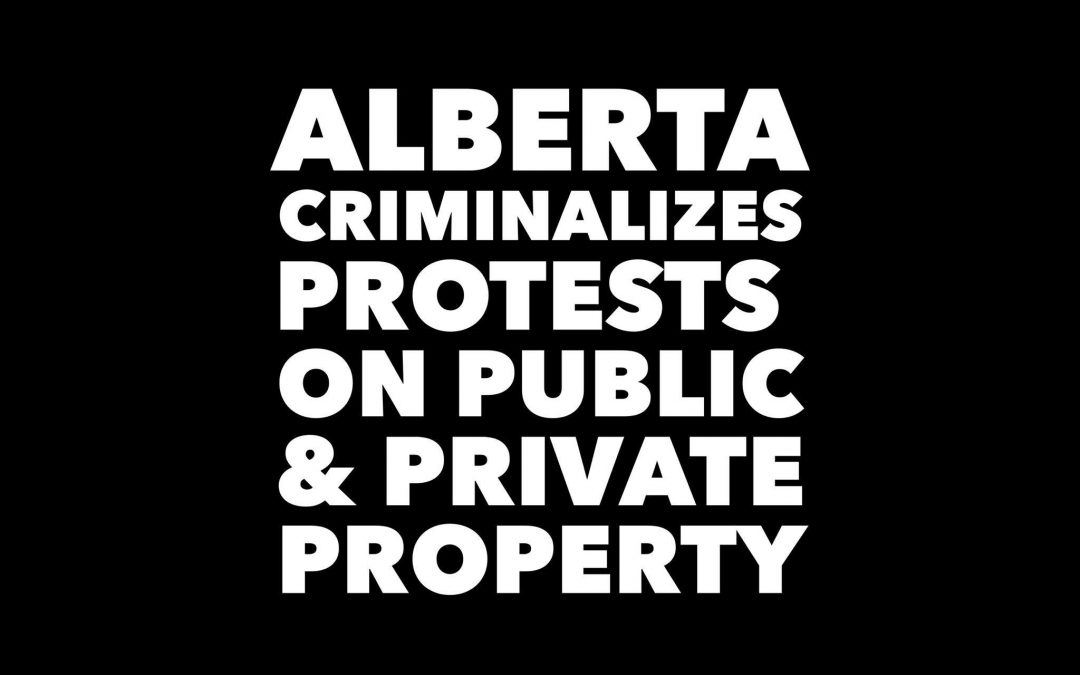
Those of us involved with attempting to ban the slaughter of horses for human consumption, within Canada and beyond, are sickened to learn that Bill 1, which criminalizes protests on public and private property in Alberta, Canada has been granted royal assent and passed into law.
It received royal assent on the morning of June 17, 2020 and comes into effect immediately.
The excerpts that follow are from two posts from the University of Calgary [Alberta, Canada] Faculty of Law website.
The first post written by: Jennifer Koshan, B.Sc., LL.B (Calgary), LL.M. (British Columbia). Professor. Member of the Alberta Bar.
The second by: Alexandra Heine, Juris Doctor (J.D.)
“The purposes of social protest demonstrations are to make the public aware of group or social interests, to call for deliberate action, and to insist on the recognition of marginalized interests and rights.
In a democracy, those engaged in peaceful protests must be free to demonstrate in places of safety – places where they are not subject to arrest and punishment simply for being present in a public space.
Too often, where the police are under pressure to enforce the letter of the law, the spirit of the law is undermined. In those instances, the police enforce “petty” laws that escalate into violence, abuse and fear.”
“While only five sections long, [Bill 1] manages to prohibit a wide range of conduct, grant extraordinary powers to police and other peace officers, and impose significant sanctions on those who contravene the legislation.” [AKA the right to hold a peaceful protest.]
Section 2 of Bill 1 lists this as one of the prohibitions:
2(1) No person shall, without lawful right, justification or excuse, wilfully enter on any essential infrastructure.
The term “essential infrastructure” is defined in section 1 of Bill 1 and it captures a broad range of infrastructure including pipelines, railways, public utilities, and agricultural operations…
It includes streets, thoroughfares, parkways, driveways, and alleys, “whether publicly or privately owned, that the public is ordinarily entitled or permitted to use for the passage or parking of vehicles.”
It also includes sidewalks, ditches, and land between fences and highways.
“It’s hard to believe that in Alberta, Canada the right to protest any cause, even on private property, has essentially become illegal.”
Section 3 of Bill 1 states that anyone who contravenes section 2 is guilty of an offence and liable, in the case of a first offence, to a minimum fine of $1,000 and a maximum fine of $10,000, to imprisonment for a term not exceeding 6 months, or both.
In the case of a second or subsequent offence, an individual is liable to a minimum fine of $1,000 and a maximum fine of $25,000, to imprisonment for a term not exceeding 6 months, or both. The Bill also sets significantly higher fines for a corporation that commits an offence.
“Section 4 gives peace officers the power to arrest without a warrant any person who contravenes subsection 2(1), (2), or (3).”
“What we see in Bill 1 is an attempt by the government of Alberta to penalize all protests that are group activities, and perhaps individual entry onto essential infrastructure too.”
“Bill 1 does not even pretend to facilitate and channel social protest demonstrations into locations that are acceptable and safe for both protesters and other members of the public.”
“While Bill 1 may dissuade some from what are lawful protests based on their Charter rights, there will always be those like Martin Luther King for whom oppressive laws are not a deterrent to civil disobedience and protest (see Letter from a Birmingham Jail).”
Keep reading…
“Mass arrests and charges are foreseeable, but the cost of challenging even some of these arrests will be prohibitive for most.”
SO WHAT CAN YOU DO TO HELP OVERTURN BILL 1?
Live in Alberta?
Contact your MLA.
Not sure who your MLA is, or how to contact?
AND… contact the office of the premier, Jason Kenney
via the easy to fill out form on this page:
https://www.alberta.ca/premier-contact.cfm://www.alberta.ca/premier-contact.cfm
PLUS:
Phone: 780-427-2251 (Edmonton)
Toll free: 310-0000 (in Alberta)
Phone: 780-427-2711 (outside Alberta)
Mail:
Office of the Premier
307 Legislature Building
10800 – 97 Avenue
Edmonton, Alberta T5K 2B6
Email: premier@gov.ab.ca
Don’t live in Alberta?
Contact Premier Jason Kenney with the information above…
AND contact your (Federal) Member of Parliament.
https://www.ourcommons.ca/members/en/search



The page you requested could not be found. Try refining your search, or use the navigation above to locate the post.

The Honourable Lawrence MacAulay, the current Minister of Agriculture and Agri-Food, has the power to end the inhumane export of horses by air for slaughter by enacting a regulatory amendment.
Help spread the word by sharing this email campaign with friends and family! You can also support the cause by donating—your contribution will help fund advertising efforts to raise awareness and push for change. Every action makes a difference!
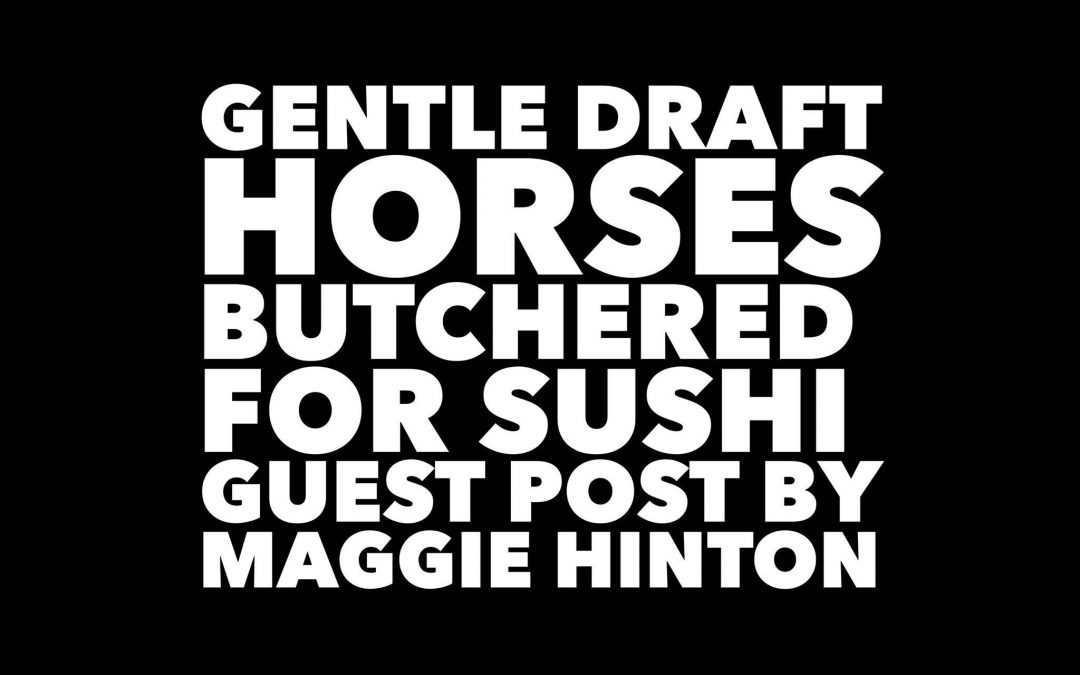
Very special thanks to Maggie Hinton of Canadians Against Horse Abuse who writes:
Many Canadians and Americans do not realize that even though horse slaughter is currently not allowed in the United States, horses from both countries are slaughtered in Canada for human consumption.
Additionally, since 2012 draft horses have been shipped by air from Canada to Japan to be slaughtered for consumption, including for sushi.
The Canadian Meat Council, a member of the *Canadian Agri-Food Trade Alliance (CAFTA) coalition worked on a **deal with the Canadian Government and Japan to eliminate tarriffs on the export of horses from Canada to Japan for slaughter.
Since that time individuals and organizations including the Canadian Horse Defence Coalition(CHDC) have been lobbying the Canadian government to stop the shipment of live horses for slaughter to Japan.
CHDC issued the first press release on the subject of live horse exports to Japan for slaughter in 2012, and were quick to point out how shipping horses live to Japan is economically feasible, because the CFIA is turning a blind eye to their own shipping regulations…
“Footage taken of Alberta horses being shipped live to Japan for slaughgter shows that the Canadian Food Inspection Agency (CFIA) is violating their own standards set forth in the Health of Animals Regulations. The regulations prohibit the transportation of all animals under conditions that would expose the animals to undue injury or suffering.”
More recently CHDC sued the Canadian Food Inspection Agency, which is a Canadian Federal Government agency for blatantly ignoring international shipping regulations.
So again, like many others, you may be wondering how shipping horses by air to Japan could possibly be economically feasible.
Eliminating tariffs helped keep costs down. In addition, kill buyers and producers get away with keeping horses in crowded, wet, dirty, cold, feedlots without adequate shelter, including in winter — and we all know how cold Canadian winters can be. Horses are transported in crowded trailers to the airport.
Then because the Canadian Food Inspection Agency turns a blind eye, horses are shipped by air to Japan in flimsy, wooden crates, with as many as possible crammed into each crate. (Shipping regulations allow for one draft horse per crate, but that regulation is consistently ignored.)
When shipping by air, horses are denied basic nutrition and water, pushing the limit to what the horses can tolerate. Horses destined for slaughter travel to Japan without the watchful eye of a trained equine specialist. After all, that would mean an added expense.
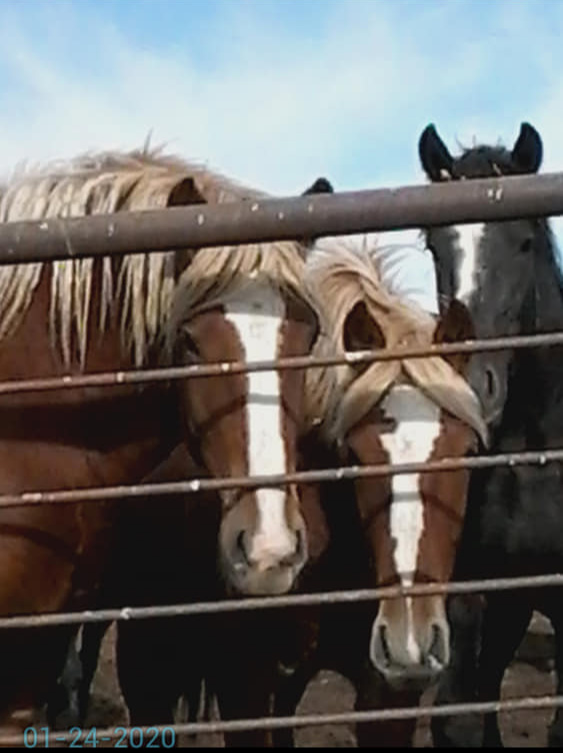
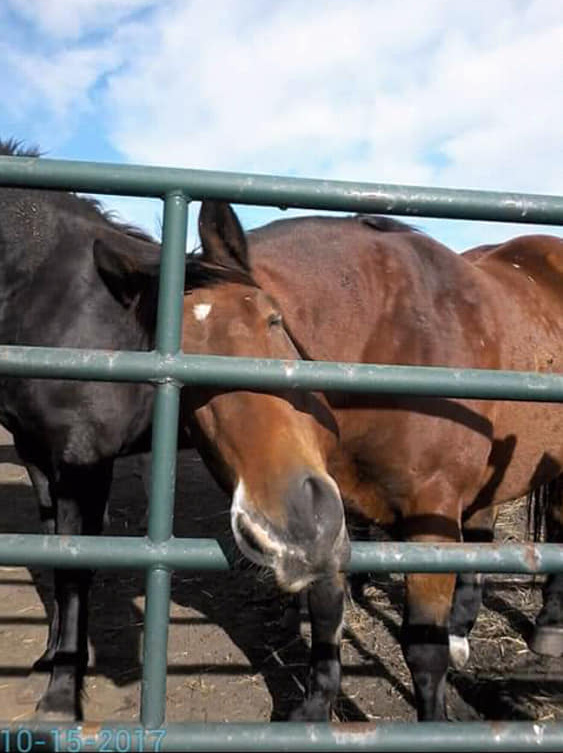
Pictures of horses in a holding pen in Alberta, Canada and destined for slaugher -- are courtesy of Christine Gallant.
*The Canadian Agri-Food Trade Alliance (CAFTA) is a coalition of national and regional organizations that support a more open and fair international trading environment for agriculture and agri-food. CAFTA’s members: Canola Council of Canada, Canadian Cattlemen’s Association, Pulse Canada, Soy Canada, Canadian Pork Council, Canadian Meat Council, Canola Growers Association, Grain Growers of Canada, Cereals Canada, Canadian Sugar Institute, Alberta Cattle Feeders Association, National Cattle Feeders Association, Barley Council of Canada. Based on domestic exports data for 2015, CAFTA’s members account 48 billion dollars of exports, representing 80% of the total value of Canadian agricultural and agri-food products exports.
**In 2012 Canada and Japan announced the launch of negotiations towards a comprehensive and high-level economic partnership agreement (EPA). The agreement known as the Canada-Japan Economic Partnership seeks to reduce and in some cases eliminated the non-tariff and tariff barriers that limits trade between the two nations.
CAFTA seeks expanded market access in Japan through the removal of import tariffs and non-tariff trade barriers.
CAFTA supports Canada’s participation in the EPA and believes it will significantly contributes to the growth and competitiveness of the agricultural sector.”
The following is page 2 of a 1,134 page report – a spread sheet:
https://www.international.gc.ca/trade-agreements-accords-commerciaux/assets/pdfs/tpp-ptp/2-D.Japan-Tariff-Elimination-Schedule.PDF (Global Affairs Canada)
“TARIFF SCHEDULE OF JAPAN (HS2012)
(Year 1 – 21 and subsequent years)
LIVE ANIMALS AND ANIMAL PRODUCTS – (NO TARIFFS with exception of 010121.290)
01.01 Live horses, asses, mules and hinnies
Horses
0101.21 Pure-bred breeding animals
010121.100 Certified as being those other than Thoroughbred,Thoroughbred-grade, Arab, Anglo-Arab or Arab-grade horses (hereinafter referred to as “light-breed horses”) in accordance with the provisions of a cabinet order
2 Other
010121.210(1) “Light-breed horses” certified as being those used for purposes other than horse-race and as being not pregnant in accordance with the provisions of a cabinet order
010121.290(2) Other 3,400,000 yen/each
0101.29 Other
010129.1001 Certified as being not “light-breed horses” in accordance with the provisions of a cabinet order
2 Other
010129.210(1) “Light-breed horses” certified as being those used for purposes other than horse-race and as being not pregnant in accordance with the provisions of a cabinet order “



The page you requested could not be found. Try refining your search, or use the navigation above to locate the post.

The Honourable Lawrence MacAulay, the current Minister of Agriculture and Agri-Food, has the power to end the inhumane export of horses by air for slaughter by enacting a regulatory amendment.
Help spread the word by sharing this email campaign with friends and family! You can also support the cause by donating—your contribution will help fund advertising efforts to raise awareness and push for change. Every action makes a difference!